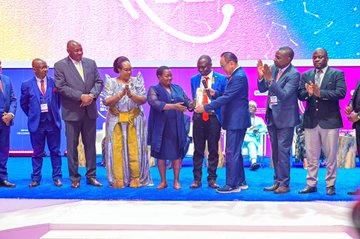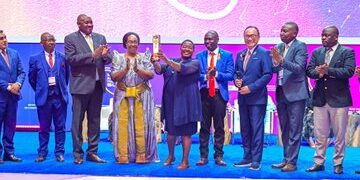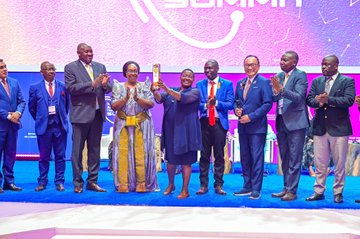Uganda’s capital city is this week playing host to a landmark regional gathering — the Middle East & Africa Digital Transformation Summit 2025 — at the prestigious Kampala Serena Hotel.
The summit, themed “Driving Digital Transformation for a Connected and Inclusive MEA Region,” has brought together senior government officials, private sector leaders, development partners, and tech innovators from across Africa and the Middle East to chart a new course for regional digital growth.
Inclusive Innovation
The summit was officially opened by Rt. Hon. Robinah Nabbanja, Prime Minister of Uganda, delivered a keynote address on behalf of President Yoweri Kaguta Museveni. She underscored the summit’s significance as a platform for collaboration and collective action to close the digital divide.
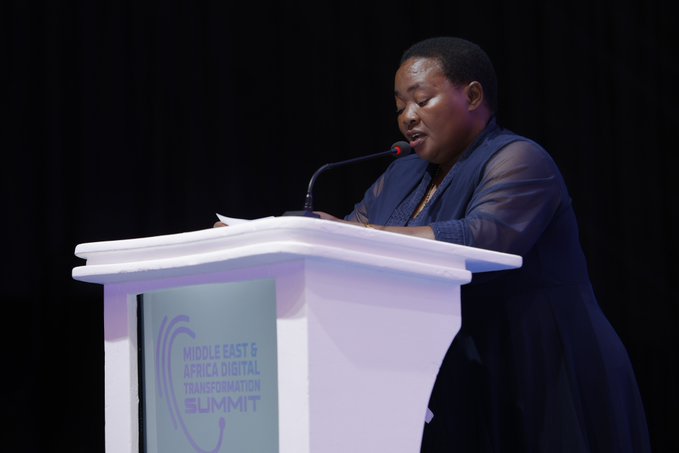
“The Middle East & Africa Digital Transformation Summit is both timely and deeply aligned with our collective development aspirations,” Nabbanja said. “Globally, every facet of social, economic, and political life is now shaped by ICT. Uganda considers digital transformation not only a government priority but a foundational pillar of inclusive and sustainable development.”
Calling for practical outcomes from the summit, Nabbanja stressed that participants must move “beyond PowerPoint presentations” and commit to tangible investment and innovation. She identified key focus areas including blockchain, AI, cybersecurity, fintech, smart agriculture, and affordable connectivity.
“We must mobilise investments, build partnerships, and foster ecosystems that promote real innovation. Let this not be a talk shop, but a launchpad for regional progress,” she urged.
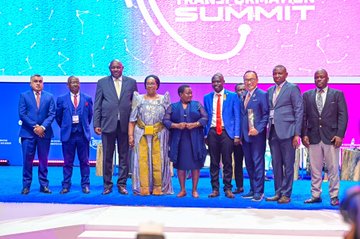
ICT at the Heart of Uganda’s National Strategy
Dr. Chris Baryomunsi, Minister of ICT and National Guidance, reiterated the centrality of digital infrastructure in Uganda’s Vision 2040 and National Development Plan (NDP IV).
“Uganda is prioritising broadband expansion, e-government services, local innovation ecosystems, and digital skills development,” said Baryomunsi. “Through platforms like this summit, we aim to position Uganda as a regional hub for digital transformation.”
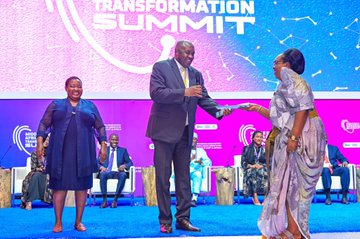
He also highlighted Uganda’s openness to partnerships in ICT device manufacturing, software development, clean energy, and youth-focused digital skilling.
“Our government remains committed to regional and global frameworks that advance digital inclusion. We invite investors and partners to work with us to unlock opportunities for our people,” Baryomunsi said.
A Pan-Regional Commitment to Digital Inclusion
The event is co-organised by HiPipo, the COMESA Business Council, and Uganda’s Ministry of ICT & National Guidance, with support from various global and regional institutions. According to Hon. Joyce Nabbosa Ssebugwawo, Minister of State for ICT & National Guidance, the summit reflects a shared regional vision for the future.
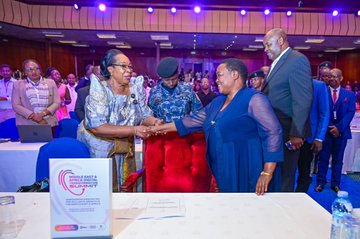
“With over 1.4 billion people in Africa and the Middle East — the youngest and fastest-growing population globally — this is a defining moment,” Ssebugwawo said. “Digital transformation offers us the chance to empower youth, women, and underserved communities.”
“The least we can do is to maximise our digital dividend, leveraging innovation to deliver value for our people,” she added.
Tech Industry Engagement & Financial Innovation
Private sector leaders echoed government sentiments. Innocent Kawooya, CEO of HiPipo, described the summit as a turning point for Africa and the Middle East.
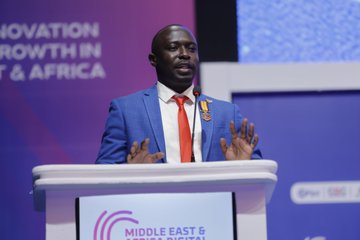
“This summit is a gateway to unprecedented opportunities,” Kawooya said. “We must move from conversation to investment, from pilots to scale, and from ideas to real impact. Together, let us shape a future where no one is left behind.”
Richard Yego, CEO of MTN MoMo Uganda, also participated in the summit and highlighted the role of digital finance in driving inclusion.
“MTN MoMo remains committed to building an inclusive digital economy,” Yego said. “We are enabling access to digital financial solutions that touch millions of lives across Africa.”

The summit’s opening day also featured a panel discussion on Islamic Finance as a Driver for Inclusive Financial Digital Transformation, which explored how ethical finance models could power equitable innovation in underserved communities.
From Dialogue to Delivery
The three-day event features plenary discussions, breakout sessions, exhibitions, and networking forums focused on a wide range of topics including: Smart cities and digital infrastructure, E-government and public service delivery, Youth skilling and innovation hubs, Cybersecurity and data sovereignty, Fintech and cross-border payments and Green technology and sustainability.
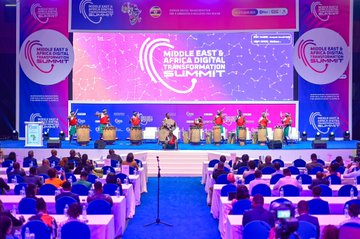
Uganda is positioning itself as a digital transformation leader, aligning its efforts with the UN Sustainable Development Goals, Africa’s Agenda 2063, and regional blueprints like the COMESA Digital Free Trade Area.
In her closing remarks, Prime Minister Nabbanja tasked the ICT Ministry with compiling key recommendations from the summit for policy integration and implementation.
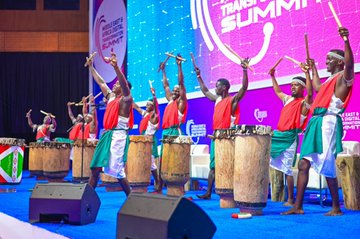
“Let us use this moment to build lasting frameworks and partnerships that transform our economies and uplift our people,” she said. “Uganda stands ready to lead and collaborate for a digitally empowered MEA region.”
The Middle East & Africa Digital Transformation Summit 2025 continues until Friday, with participation from more than 30 countries, regional organisations, development agencies, tech firms, and youth innovators.
